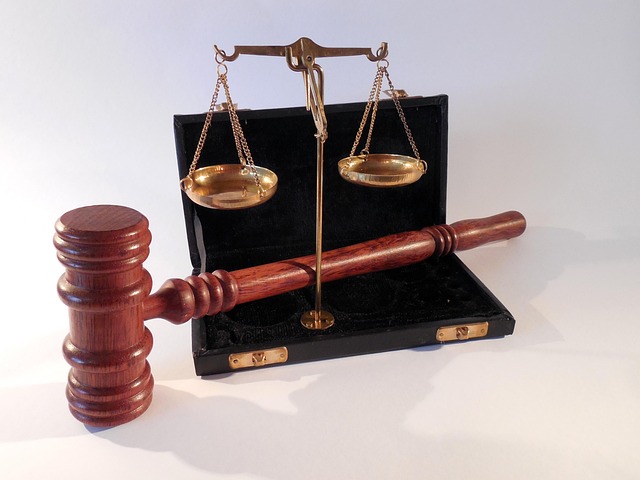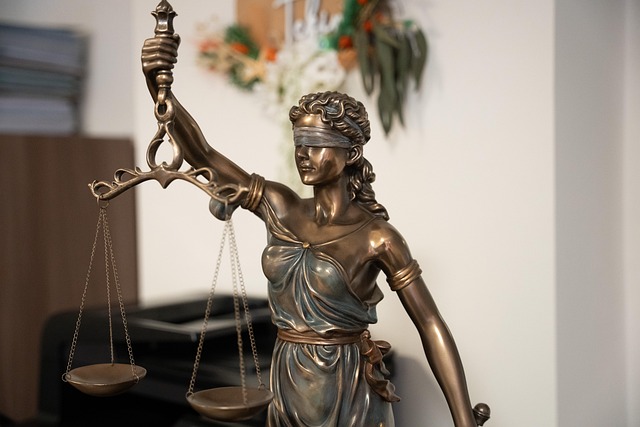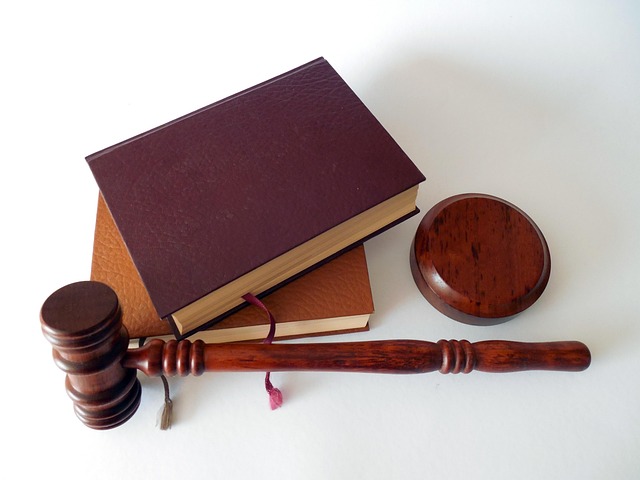Whistleblower Protection Lawsuits safeguard individuals exposing illegal activities, with the Right to Counsel in Criminal Cases as a cornerstone. This right ensures legal representation, enabling whistleblowers to navigate complex laws, avoid indictment, and hold corrupt entities accountable. By understanding these protections, individuals can courageously expose wrongdoings, fostering transparency and justice in business and government. Accessing tailored legal guidance is crucial for successful outcomes and mitigating retaliation risks.
“Uncovering wrongdoings within organizations often begins with whistleblowers—individuals who risk their careers to expose illegal or unethical activities. This article delves into the legal landscape surrounding whistleblower protection lawsuits, exploring critical aspects like understanding these suits, the significance of right to counsel in criminal cases, and strategic navigation. We analyze protections offered under various legal frameworks while acknowledging challenges faced by whistleblowers. By examining real-world impacts, we provide a comprehensive guide for those navigating this complex area.”
- Understanding Whistleblower Protection Lawsuits
- The Role of Right to Counsel in Criminal Cases
- Protections for Whistleblowers: Legal Framework
- Strategies for Navigating Whistleblower Suits
- Impact and Challenges: A Comprehensive Look
Understanding Whistleblower Protection Lawsuits

Whistleblower Protection Lawsuits are legal battles that arise when individuals, known as whistleblowers, expose illegal or unethical activities within their respective business or governmental organizations. These lawsuits are designed to safeguard the rights of those who risk personal and professional repercussions to bring these issues to light. A crucial aspect of these cases is the Right to Counsel in Criminal Cases, ensuring that whistleblowers have legal representation when facing potential criminal charges. This right is vital for achieving extraordinary results, as it provides the necessary support to navigate complex legal procedures and avoid indictment.
By invoking whistleblower protection laws, individuals can play a pivotal role in holding corrupt entities accountable while safeguarding their own interests. Understanding these protections and knowing how to access them can significantly influence the outcome of such cases. This knowledge empowers whistleblowers to take courageous steps towards exposing wrongdoings, fostering transparency, and upholding justice, ultimately shaping the integrity of the respective business or governmental landscape.
The Role of Right to Counsel in Criminal Cases

In criminal cases, the Right to Counsel is a cornerstone of fair justice. This fundamental right, enshrined in legal systems worldwide, guarantees that individuals accused of crimes have access to an attorney for their defense. It’s not just about ensuring legal representation; it empowers defendants to navigate complex legal processes, understand their rights, and build a winning challenging defense verdict. This right is crucial, especially for corporate and individual clients alike, as it safeguards them from facing charges without proper legal guidance.
The presence of an attorney allows accused individuals to challenge evidence, question witnesses, and raise defenses that might otherwise be overlooked. This legal counsel can significantly impact the outcome of a case, potentially leading to the complete dismissal of all charges. By exercising their Right to Counsel, defendants can ensure they receive a fair trial, protecting themselves from unjust convictions and the potential consequences that come with them.
Protections for Whistleblowers: Legal Framework

Whistleblower protection laws offer a crucial safety net for individuals who expose illegal or unethical activities within their organizations. These legal frameworks are designed to encourage citizens to come forward with vital information, ensuring they are shielded from potential retaliation. One key aspect of this protection is the right to counsel in criminal cases. This legal right empowers whistleblowers to seek representation and defend themselves against any false charges, which can be particularly beneficial in high-stakes cases.
By having access to legal counsel, whistleblowers can navigate complex legal processes and present their side of the story effectively. This right has proven instrumental in securing winning challenging defense verdicts, where individuals have been completely dismissed of all charges for acting as good Samaritans. Such protections encourage a culture of transparency and accountability, ensuring that those who expose corruption or wrongdoing are not faced with adverse consequences.
Strategies for Navigating Whistleblower Suits

Navigating a whistleblower lawsuit requires a strategic approach to protect one’s rights and ensure the best possible outcome. The first step is to understand the unique circumstances of your case and seek out legal professionals with expertise in this specific area. Engaging an attorney who specialises in whistleblower protection lawsuits is crucial, especially given the complex nature of these cases. They can provide guidance tailored to your situation, ensuring you exercise your rights effectively.
One key strategy involves asserting your Right to Counsel in Criminal Cases, which is a fundamental legal protection. By retaining legal counsel, whistleblowers can defend against allegations, gather evidence, and build a strong defence. This proactive approach has proven effective across the country, with many successful outcomes for individuals who have taken this step. Ultimately, avoiding indictment or securing a favourable resolution becomes more achievable when armed with an unprecedented track record of legal expertise in whistleblower protection.
Impact and Challenges: A Comprehensive Look

Whistleblower Protection Lawsuits have a profound impact on corporate governance and public safety, fostering transparency by incentivizing employees to report illegal or unethical activities within their organizations. However, navigating these legal actions presents unique challenges. Whistleblowers often face retaliation from employers, including termination, blacklisting, and intimidation—making it critical for them to have robust protections in place. One such protection is the Right to Counsel in Criminal Cases, which guarantees whistleblowers access to legal representation during investigations and proceedings, crucial for building a winning challenging defense verdict.
Achieving extraordinary results for his clients involves navigating complex legal landscapes and presenting compelling evidence. Skilled attorneys play a pivotal role in guiding whistleblowers through these processes, ensuring their rights are upheld. By effectively utilizing legal strategies and advocating for their clients’ interests, these professionals help secure favorable outcomes, thereby encouraging more individuals to come forward with crucial information without fear of reprisal.
Whistleblower Protection Lawsuits, while complex, offer crucial legal avenues for individuals who expose wrongdoing. By understanding the intricacies of these cases, especially the significance of the Right to Counsel in Criminal Cases, whistleblowers can navigate their legal protections effectively. The comprehensive strategies outlined here empower folks to safeguard against potential challenges and ensure a robust legal framework. In today’s digital era, where such disclosures often resonate widely, it’s vital to recognize both the impact and complexities these lawsuits present.






